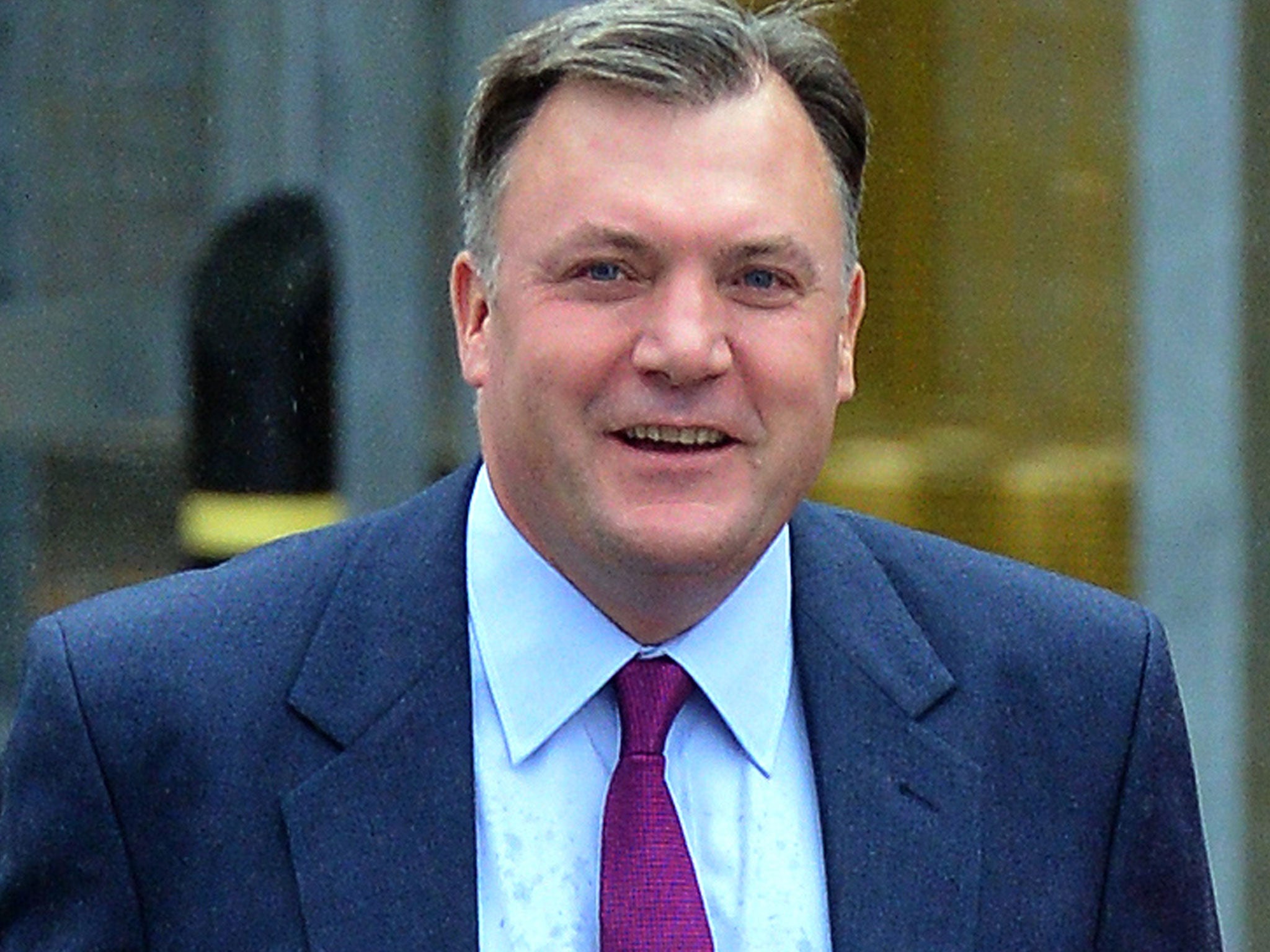Ed Balls: Labour would cap state pension if it returned to power
Shadow chancellor sets challenge to George Osborne, who is due to announce a cap on the welfare bill this month

Your support helps us to tell the story
From reproductive rights to climate change to Big Tech, The Independent is on the ground when the story is developing. Whether it's investigating the financials of Elon Musk's pro-Trump PAC or producing our latest documentary, 'The A Word', which shines a light on the American women fighting for reproductive rights, we know how important it is to parse out the facts from the messaging.
At such a critical moment in US history, we need reporters on the ground. Your donation allows us to keep sending journalists to speak to both sides of the story.
The Independent is trusted by Americans across the entire political spectrum. And unlike many other quality news outlets, we choose not to lock Americans out of our reporting and analysis with paywalls. We believe quality journalism should be available to everyone, paid for by those who can afford it.
Your support makes all the difference.Ed Balls, the shadow Chancellor, has warned that an incoming Labour government would set a limit on its welfare budget that would include pensions, because pensioners also have to share the pain as the UK struggles to get its economy back on track.
In doing so, he set a challenge to the Chancellor George Osborne, who is due to announce a cap on the welfare bill this month, from which pensions are expected to be exempt, because the coalition government is wary of upsetting the over 60s, who have an exceptionally good record for turning out to vote at election time.
Mr Balls also appeared to have contradicted the Labour leader, Ed Miliband, whose staff had briefed journalists only days ago to say that Labour would protect the so-called ‘triple lock’, which guarantees that state pensions go up every year.
His remarks were part of an interview intended to demonstrate that Labour is ready to take hard decisions to get the economy in shape. Mr Balls promised that a Labour government “will spend the money which we inherit, no more.”
“I’ll have to be a Chancellor who says no. That’s how it’s going to be,” he told the BBC’s Sunday Politics programme. “Look across the whole welfare state and ask what are the drivers of expenditure. I think many people watching your programme will not realise that actually today the clear large bulk, most welfare spending is in fact going to people over 60. That is the truth. We should look across the piece.”
Mr Balls’s announcement set off a gleeful reaction from the Conservative side, and had Labour spin doctors moving into action to soften the impact of his words. The Tory Treasury feed announced on Twitter: “Ed Balls has revealed what Labour really mean when they talk about controlling the welfare bill - cutting the state pension.“
The Tory business minister Matthew Hancock, a close ally of George Osborne, added: “Balls admits that when Labour say they will cap benefits, what they mean is they will cap pensions of people who have worked hardtheir whole lives. We will cap benefits for those who want something for nothing.”
But Labour spin ministers emphasised that Mr Balls was not planning to scrap the ‘triple lock’, which guarantees that pensions rise annually in line with inflation, earnings, or by 2.5 per cent, whichever is the greatest. They said that the basic pension would continue to rise annually under Labour, while they looked at long term possibilities for cutting the cost, such as raising the retirement age.
A spokesman said: “Labour supports the triple lock on the state pension, but as Ed Balls said it would be perverse to exclude overall spending on pensioners and the impact of an ageing society from any sensible and long-term fiscal plan to monitor and control structural social security spending. That’s why we have supported increases in the retirement age as people live longer and why we have also said we would not pay the winter allowance to the richest 5 per cent.”
Join our commenting forum
Join thought-provoking conversations, follow other Independent readers and see their replies
Comments